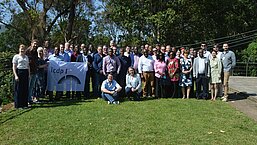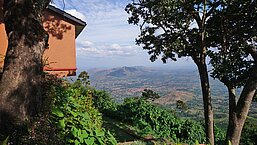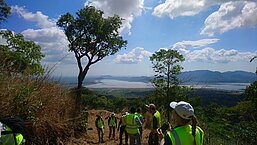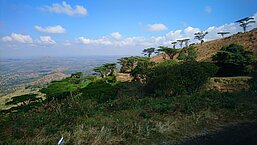Drilling an alkaline-carbonatite complex to understand how fluid-rock interaction influences rare earth element mineralisation, groundwater and deep life
Project Acronym: REEDRILL | State: Workshop Held
Alkaline-carbonatite igneous complexes host the world’s largest and highest grade rare earth element (REE) deposits and are critical for the global transition from fossil fuels towards a low-carbon society. Many aspects of these igneous complexes remain poorly understood, particularly relating to variation in composition and structure with depth. A significant question is the spatial and temporal variability in fluids associated with alkaline-carbonatite complexes, and their influence on microbial deep life and on groundwater systems.
This project wants to undertake deep drilling of a carefully selected and well-characterised REE-rich complex in Malawi (Songwe Hill) to investigate, how fluid-rock interactions have evolved over time to control mineralisation geometry, groundwater hydrogeochemistry, and deep subsurface life.
Keywords: Africa, Malawi, Alkaline Rocks, Carbonatite, Deep Life, Groundwater, REE Mineralization

Project News (click for all News)
Project Management
Project Details
Project Location
Project Timeline
First Full Proposal Submitted
Workshop Held
22 - 26 May 2023 in Zomba, Malawi




